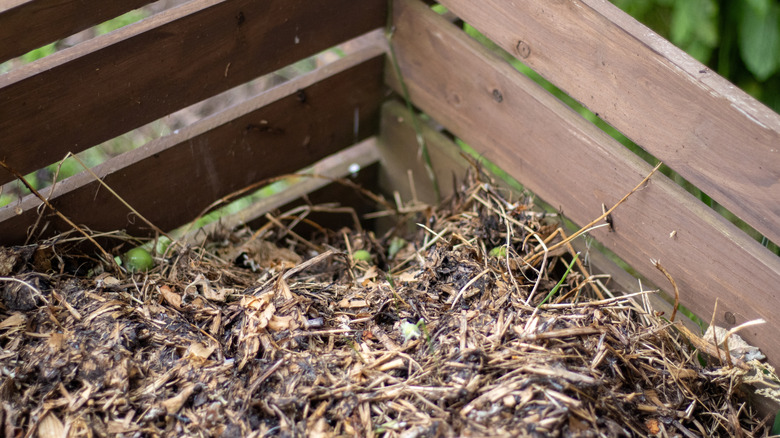Put Those Pesky Garden Weeds To Good Use With This Martha Stewart Approved Tip
Every garden has its share of weeds, but that doesn't mean they should hold you back from creating a beautifully curated, Martha Stewart-worthy landscape. While weeds may feel like an annoying roadblock, with the right approach, you can transform them from unwanted guests to helpful contributors in your garden. Most of us dispose of weeds after pulling them from the ground, but there's nothing wrong with recycling your resources, no matter how useless they seem at first glance.
Martha Stewart has been a reliable gardening resource for decades now, offering everything from expert advice for growing the perfect pumpkins to essential tips on maintaining a vibrant garden year-round. With all of her experience, it's no surprise she knows exactly what to do with pesky weeds. One top tip from Sally McCabe, associate director of community education for the Pennsylvania Horticultural Society, was shared on Stewart's website. McCabe says, "Jam the weeds into big pots and let them decompose for a few weeks, then top the pot with good soil."
This method of using weeds as a container filler underneath your prized plants is more than just a way to store the weeds so they're kept out of sight; it's a simple and sustainable way to benefit your garden long-term through composting. Stewart knows exactly how to set your garden up for success, so the next time those unsightly weeds start to take over, take a step back, consider her advice, and turn them into an opportunity to enhance your garden instead.
Compost weeds to use as filler in your garden
Martha Stewart's tips make repotting your favorite plants a breeze, and her clever trick of using weeds as a sustainable filler in your garden can really help to turn a common nuisance into a valuable practice. The weeds will decompose over time, improving the fertility of the soil in the pot and limiting garden waste. Composting your weeds to use as filler doesn't just work in potted plants; it can also be a thrifty approach for filling your raised beds. Whether you're working with large pots or tall garden beds, using filler like weeds can help save money on expensive soil.
However, there are some important things to consider before composting your weeds, like knowing which weeds you should avoid using. Stay away from weeds that appear diseased to prevent any risks to the health of your garden, and don't use weeds that have developed seeds — their fertility can bring more weeds back, frustrating you all over again. To prevent further issues during the composting process, ensure your pots get hot enough. Environments that reach about 100 degrees Fahrenheit can help to successfully kill the weeds, so they won't make a reappearance at a later date.

